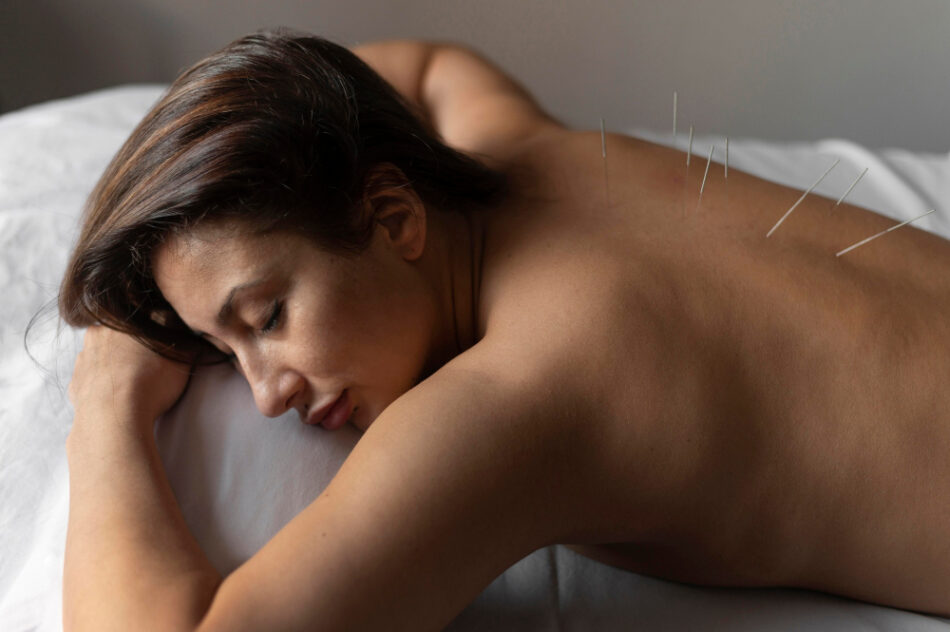Stress has become part of daily life for many people. From long work hours to constant digital distractions, your body and mind are often stuck in high alert mode. This constant pressure can lead to poor sleep, muscle tension, anxiety, and fatigue. More people are now looking for natural ways to calm their system, and acupuncture for stress relief is gaining attention because it is safe, effective, and supported by science
What Stress Does to Your Body
When you feel stressed, your nervous system releases hormones like cortisol and adrenaline. These chemicals keep you alert but also raise your heart rate, tighten your muscles, and affect your sleep. If stress continues without recovery, it may cause:
- Headaches and neck pain
- Irritability and mood swings
- Brain fog and poor focus
- Low energy and fatigue
- Problems with digestion
Over time, chronic stress can weaken your immune system and make you feel stuck in a constant state of worry. Finding natural ways to calm the nervous system is important for your health and quality of life.
How Acupuncture Helps You Relax
Acupuncture has been practiced for thousands of years and is now studied by modern science. It works by gently placing thin needles at specific points on the body. These points are linked with the nervous system and blood flow.
Researchers have found that acupuncture can:
- Calm the nervous system: It shifts your body from the “fight or flight” state into the “rest and recover” state.
- Balance hormones: It may reduce cortisol, the stress hormone, and support serotonin, which improves mood.
- Improve circulation: Better blood flow brings more oxygen to your brain and muscles, helping you feel clear and relaxed.
- Trigger endorphins: These natural chemicals reduce pain and create a sense of well-being.
Many people notice a sense of calm during and after their first session. With regular visits, the effects often build, helping the mind and body return to balance.
Acupuncture and Anxiety
If you live with anxiety, you know it is more than just worry. Your heart may race, your chest may feel tight, or your thoughts may spin out of control. Acupuncture is now being used as a gentle way to reduce these symptoms.
- It helps regulate brain chemicals like dopamine and GABA, which calm the mind.
- It can improve sleep patterns, which often worsen anxiety.
- It reduces muscle tension that feeds physical symptoms of worry.
By addressing both the physical and emotional side of anxiety, acupuncture supports long-term relief without the side effects of medication.
Acupuncture and Sleep Problems
Stress and poor sleep go hand in hand. You may feel tired but unable to fall asleep, or wake up often during the night. Research shows that acupuncture can help by:
- Calming overactive brain activity before bedtime
- Reducing night-time cortisol levels
- Supporting melatonin, the hormone that controls sleep cycles
- Relaxing tense muscles so your body can rest
Better sleep means your body gets the time it needs to repair, which further reduces stress the next day.
Clearing Brain Fog with Acupuncture
Chronic stress often shows up as mental fatigue or brain fog. You may find it hard to focus, remember details, or stay productive. Acupuncture helps improve mental clarity by:
- Increasing blood flow to the brain
- Reducing stress-related inflammation
- Supporting hormone balance for sharper thinking
Many people report feeling more alert and present after regular sessions, which can improve both work performance and daily focus.
What to Expect in a Session
If you have never tried acupuncture, you may wonder what the experience feels like. Sessions are gentle and designed to make you comfortable.
- The practitioner will ask about your stress levels, sleep, mood, and overall health.
- Thin, sterile needles are placed at specific points—usually on your arms, legs, or back.
- You may rest for 20–30 minutes with the needles in place. Most people feel calm or even fall asleep.
- After the session, you may notice relaxation, lighter mood, or better sleep the same night.
Unlike medication, the effects build naturally. Many people start with weekly sessions, then move to maintenance once improvements are steady
Extra Therapies That May Help
Some clinics combine acupuncture with other gentle therapies to improve results. These may include:
- Cupping: Suction cups placed on the skin to release muscle tension.
- Gua Sha: A scraping technique that improves circulation and reduces tightness.
- Infrared light therapy: Gentle heat that supports healing and relaxation.
- Herbal medicine: Natural formulas that support mood, sleep, and energy.
Together, these treatments create a full approach to stress recovery.
Who Should Try Acupuncture
You may want to try acupuncture if you:
- Feel tense or anxious most of the day
- Struggle with poor sleep or wake up tired
- Experience brain fog or lack of focus
- Have physical tension such as headaches or muscle pain
- Prefer natural options instead of or alongside medication
It is safe for most people and can be combined with other medical care. Always check with a licensed practitioner who understands both traditional and modern approaches.
Taking the First Step
Stress does not have to control your life. Acupuncture offers a safe and natural way to calm your body, improve your sleep, and clear your mind. Scientific studies continue to support what many people have already experienced—the power of acupuncture for stress relief.
If you are ready to feel more balanced, you can explore clinics that specialize in this treatment.
If you are looking for a trusted partner, Core Meridian offers care that focuses on helping you recover from stress and burnout in a natural and supportive manner.







